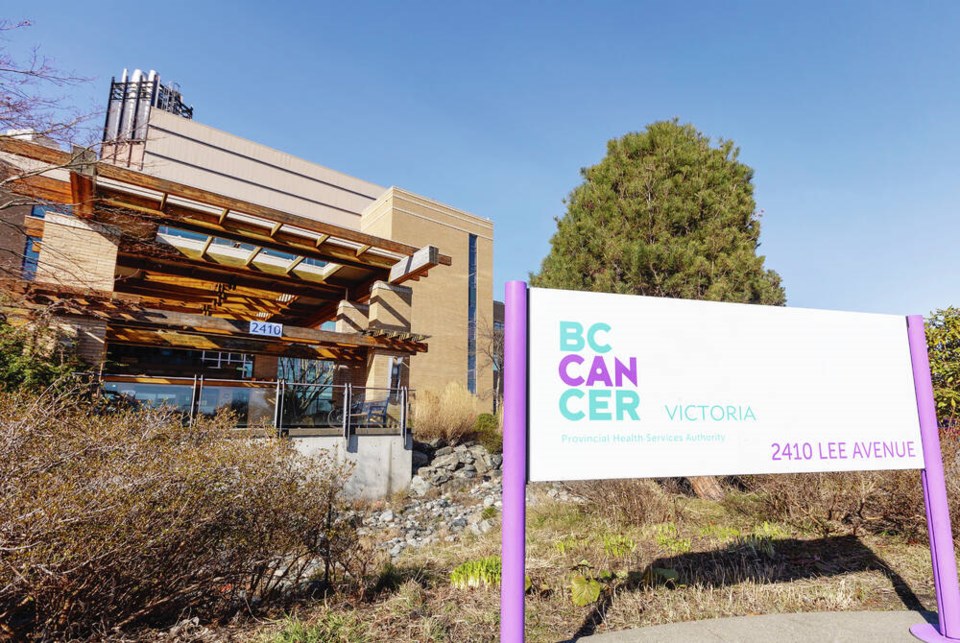B.C. Health Minister Adrian Dix announced $20 million Wednesday to help pay for travel and lodging expenses for cancer patients who must travel to receive treatment, especially those in rural and remote areas.
The Canadian Cancer Society and Hope Air are receiving $10 million each to expand existing programs. The expanded programs, expected to launch by Oct. 3 and become permanent, include providing grants to patients for travel expenses, free lodging and matching patients with volunteer drivers.
Nanaimo’s Savan Fry, an honour student at Vancouver Island University and childhood cancer survivor, spoke at a news conference in Vancouver on Wednesday, explaining how the programs played a key role in easing his family’s burden during the worst of his cancer experience.
At 16, Fry was diagnosed with brain cancer. The diagnosis was followed by a high-risk surgery, four months of “harsh” therapy and six weeks of radiation.
“However the most difficult part as a family was constantly worrying about money,” he said, whether that was travel expenses or accommodations.
Fry’s medical team knew his family’s situation and introduced them to the Canadian Cancer Society and Hope Air. They were provided accommodations within walking distance of his medical appointments and help to make trips for cancer treatments.
“Organizations that I knew nothing about turned out to be the saving grace that I needed,” said Fry.
As part of the $20-million expansion of services, fees at the Canadian Cancer Society’s four lodges offering accommodation and meals for patients and their caregivers near cancer centres — in Victoria, Vancouver, Kelowna and Prince George — will be eliminated, according to the society, and lodges will be open seven days a week. Stays will also include meals, which previously cost $55 a day.
The volunteer driving program will expand into areas of Vancouver Island that are “currently under-serviced,” according to the Health Ministry. Details of which communities the program will expand into were not immediately available.
The Canadian Cancer Society will also provide a one-time grant of $4,000 with no income test to support patients with blood cancers who require bone-marrow transplants in Vancouver.
Hope Air, a national charity that provides flights, accommodations, airport and ground transportation — and meal vouchers via private-sector partnerships — for families and individuals who must travel for medical care, will also expand its services.
It will more than double accommodation nights — to 3,300 by 2026, from 1,500 in 2023 — and flights — to 2,500 by 2026, from 1,000 in 2023 — for patients in B.C. travelling to receive cancer treatment.
Hope Air will also increase the number of travel arrangements it makes to 7,500 by 2026 from 2,000 by the end of this year. About 14 per cent of those arrangements will be for children and their parents or guardians.
The two organizations have developed a “no-wrong-door approach,” where patients can find the appropriate services and support regardless of which organization they connect with.
On Feb. 24, the province launched a 10-year cancer action plan with an initial investment of $440 million, including $20 million to support people living in rural and remote communities who need to travel for cancer care.
The province is also adding more cancer centres throughout B.C., upgrading existing hospital space through renovation and expansion, adding new diagnostic imaging equipment and trying to hire new physicians and clinical staff.
B.C. has six B.C. Cancer Centres and 41 community oncology network sites.
The expanded supports come on the heels of an announcement in May that the B.C. government would pay for travel and accommodation — at an annual cost of about $39 million — to send up to 4,800 eligible breast and cancer patients, and a caregiver, to two clinics in Bellingham, Washington, for radiation treatment and an initial consultation to ease waiting lists. That prompted cancer patients travelling within B.C. to ask for the same supports here.
Dix said the Bellingham program didn’t specifically prompt Wednesday’s announcement.
Receiving a cancer diagnosis is a life-changing event that brings physical, emotional and financial stress, he said. “The financial burden of cancer is especially held by those who live further away from a cancer centre.”




